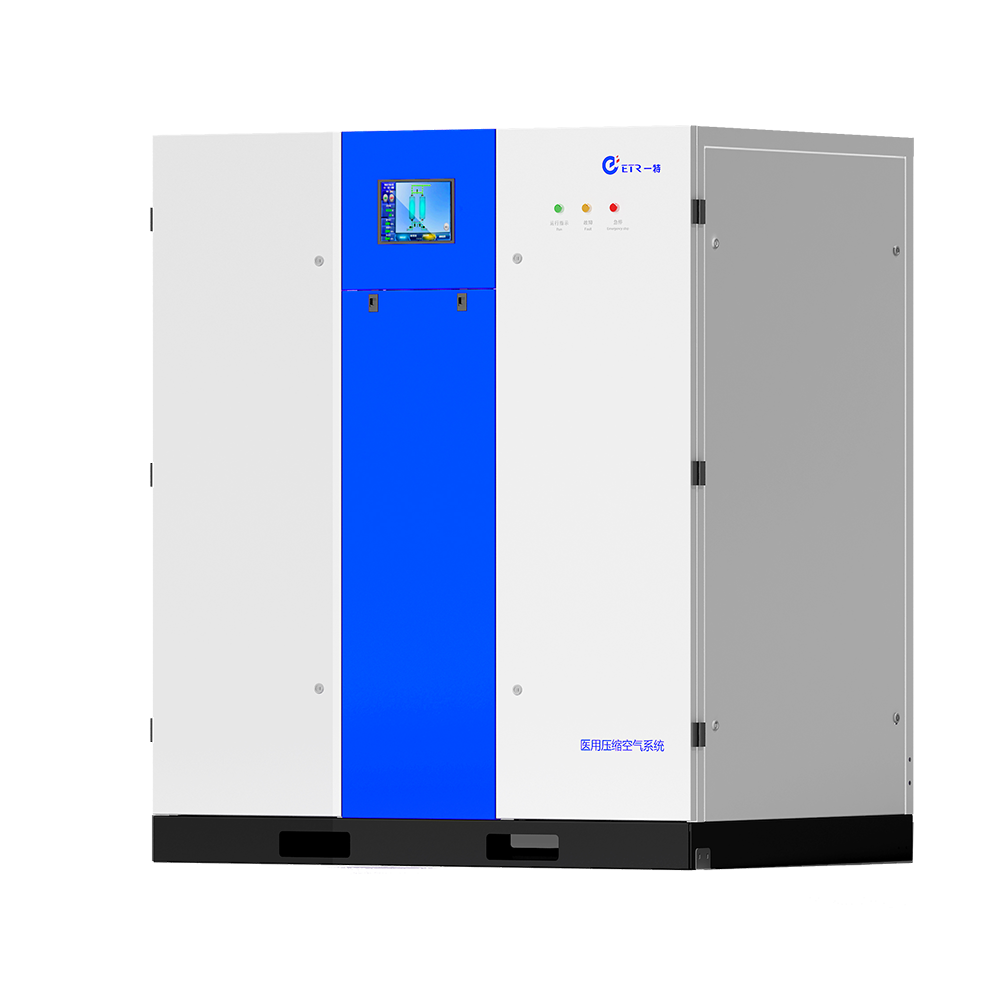In the central gas supply system of every hospital, medical compressed air ranks as one of the most critical medical gases. Furthermore, it is the only ‘medication’ “therapeutic” produced and manufactured in-house by the institutions, barring a few that deploy oxygen concentrators.
European Pharmacopoeia has classified compressed air as a pharmaceutic product and stipulates specific regulations regarding its composition. Thus, the accountability of gas supply equipment managers across different hospitals is quite valuable.
Medical compressed air is provided to different wards, clinics, floors, and areas such as the ICU, ER, and even the OR prior to patient respiration. For instance, a lot of patients who are sensitive to oxygen require medical air more than oxygen, alongside other patients that rely on precision ventilators.
So, what criteria do we have to meet in order to consider medical compressed air safe and effective for patients?
- Ensure uninterrupted delivery of medical gases.
In regards to uninterrupted delivery of medical gases, every single element in the subsystem such as the electrical controller needs to have backup, safety, or redundancy systems designed. Additionally, in the event of an instantaneous power failure, the gas supply should be maintained throughout the outage.
2.Airborne Oil Pollution Since oil is a subclass obstinate substance of hydrocarbons, the removal of oil has historically posed challenges.
It has also been observed that traditional methods using air compressors and oil have a higher probability of resulting in residual oil molecules. In addition, the use of medical gases containing oil in ventilators leads to hazardous scenarios where localized explosions can occur due to the O2-oil admixture.
The existing techniques for oil removal includes oil removal filters, activated carbon filters, and catalytic filters. Broadly speaking, there are two methods for achieving clean compressed air devoid of oil; Widespread oil removers are purchased through air compressors but other supportive equipment needs to be present to maximize efficiency .
On the other hand, using oil compression systems decreases procurement costs as long as they are installed with oil removal equipment which stabilize and safely ensure oil-free gas.
- Resolving the Issues of Water Content in the Air
People often bypass the moisture content in the air. Unlike dust particles, moisture is not collected by the air filter. It can bypass anesthetic filters and enter gas supply lines, anesthesia machines, ventilators, and other terminal devices. If the ventilator becomes “soaked” with water, it may lead to costly repairs and even scrapping of the device.
When thinking of low-temperature environments, one can also think of supply pipelines where medical gases are transported. These could freeze and, in return, block flow. Not to mention the easier pathways for oxidation which enhance harmful contents to pipelines. All of these have cost the hospital a considerable economic loss. This type of special medical treatment eliminates moisture using a suction dryer



